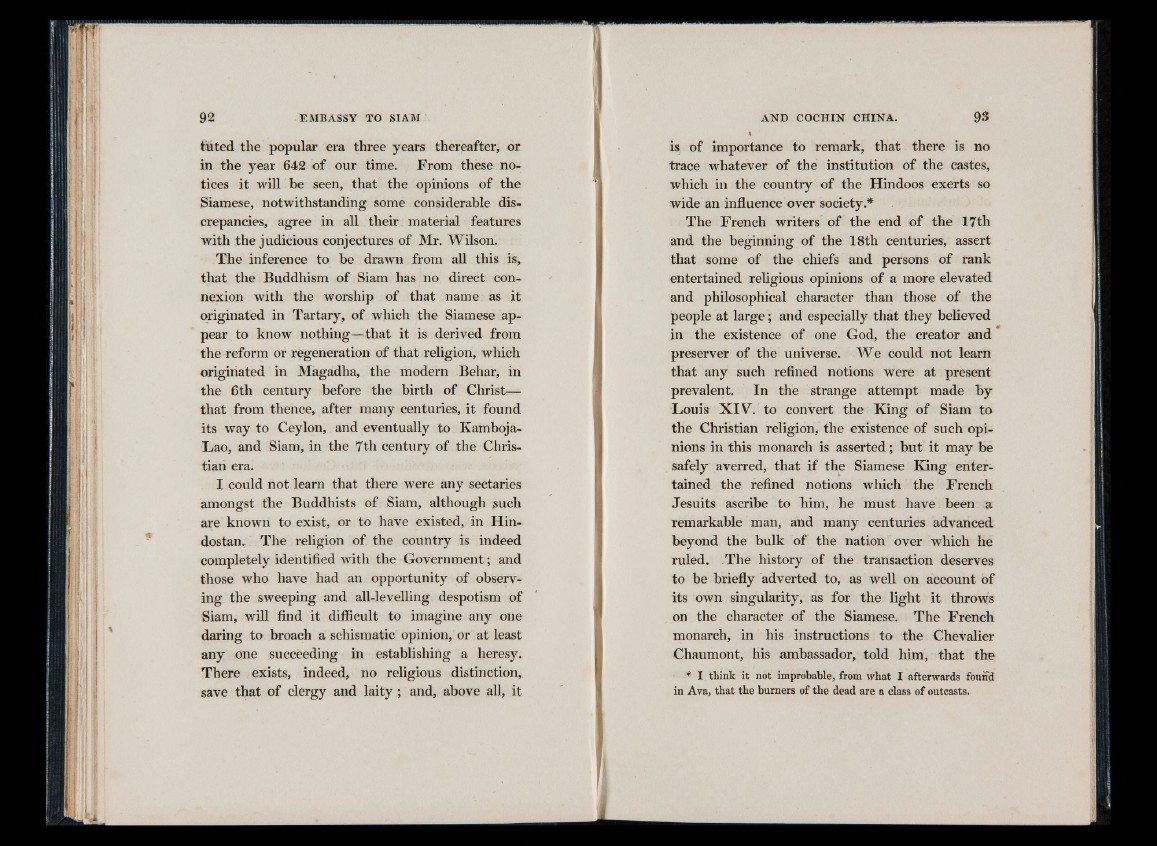
tuted the popular era three years thereafter, or
in the year 642 of our time. From these notices
it will be seen, that the opinions of the
Siamese, notwithstanding some considerable discrepancies,
agree in all their material features
with the judicious conjectures of Mr. Wilson.
The inference to be drawn from all this is,
that the Buddhism of Siam has no direct connexion
with the worship of that name as it
originated in Tartary, of which the Siamese appear
to know nothing—that it is derived from
the reform or regeneration of that religion, which
originated in Magadha, the modern Behar, in
the 6th century before the birth of Christ—
that from thence, after many centuries, it found
its way to Ceylon, and eventually to Kamboja-
Lao, and Siam, in the 7th century of the Christian
era.
I could not learn that there were any sectaries
amongst the Buddhists of Siam, although such
are known to exist, or to have existed, in Hindostán.
The religion of the country is indeed
completely identified with the Government; and
those who have had an opportunity of observing
the sweeping and all-levelling despotism of
Siam, will find it difficult to imagine any one
daring to broach a schismatic opinion, or at least
any one succeeding in establishing a heresy.
There exists, indeed, no religious distinction,
save that of clergy and la ity; and, above all, it
is of importance to remark, that there is no
trace whatever of the institution of the castes,
which in the country of the Hindoos exerts so
wide an influence over society.*
The French writers of the end of the 17th
and the beginning of the 18th centuries, assert
that some of the chiefs and persons of rank
entertained religious opinions of a more elevated
and philosophical character than those of the
people at large; and especially that they believed
in the existence of one God, the creator and
preserver of the universe. We could not learn
that any such refined notions were at present
prevalent. In the strange attempt made by
Louis XIV. to convert the King of Siam to
the Christian religion, the existence of such opinions
in this monarch is asserted; but it may be
safely averred, that if the Siamese King entertained
the refined notions which the French
Jesuits ascribe to him, he must have been a
remarkable man, and many centuries advanced
beyond the bulk of the nation over which he
ruled. .The history of the transaction deserves
to be briefly adverted to, as well on account of
its own singularity, as for the light it throws
on the character of the Siamese. The French
monarch, in his instructions to the Chevalier
Chaumont, his ambassador, told him, that the
* I think it not improbable, from what I afterwards found
in Ava, that the burners of the dead are a class of outcasts.